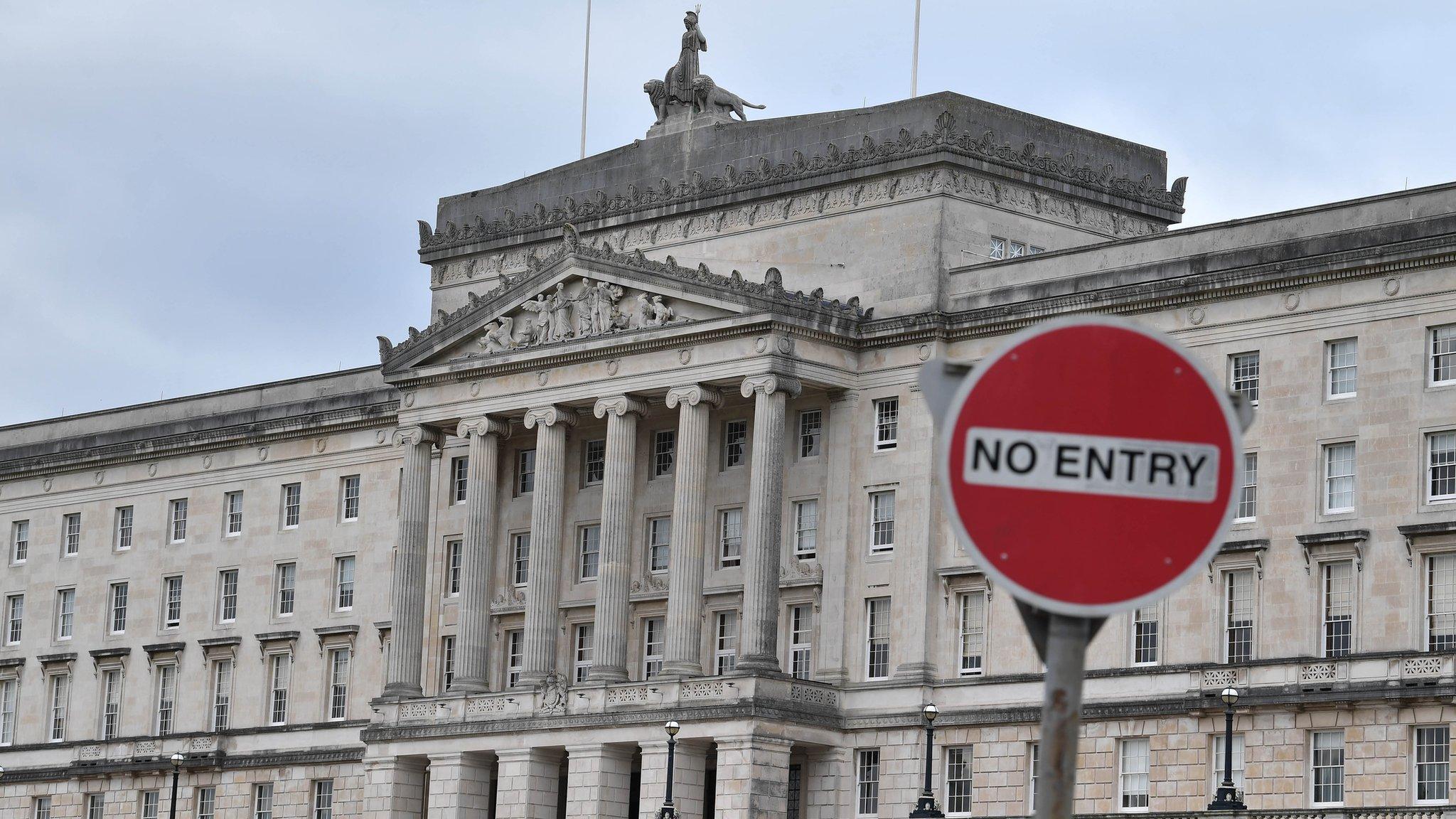Sinn Féin first minister a defining moment in Northern Ireland
- Published
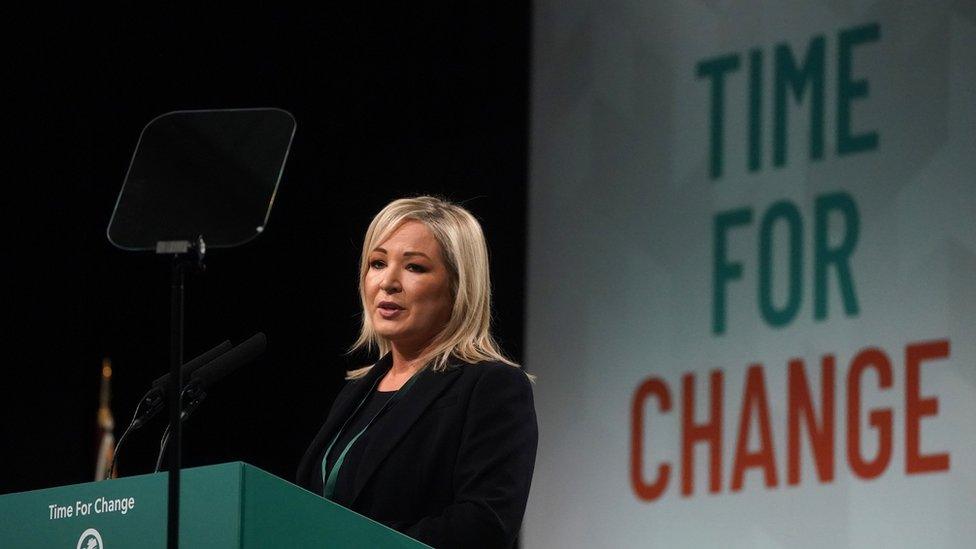
Michelle O'Neill was entitled to the first minister role after the 2022 assembly election
Since its inception Northern Ireland's governments have been led by unionist politicians.
"All I boast is that we are a Protestant parliament and a Protestant state," was how its first prime minister Sir James Craig described it in a Commons debate in 1934.
That phrase passed into history - and was sometimes reworked to "a Protestant parliament for a Protestant people" by those critical of the political institutions running Northern Ireland.
Now, for the first time in more than 100 years, the top job at Stormont will be held by a nationalist - Sinn Féin's Michelle O'Neill.
While the top two jobs in the executive have equal power, as directed by the current power-sharing rules established in 1998, the titles are different.
And in a part of the United Kingdom where flags and symbols matter, the symbolism of first versus deputy first is significant.
Ireland was partitioned 1921 following decades of turmoil between nationalists, who wanted independence from British rule, and unionists, who wanted to remain in the United Kingdom.
The six counties of Northern Ireland had a predominantly protestant/unionist population and every iteration of its local government since then has had a prime minister or first minister from that tradition.
Until now.
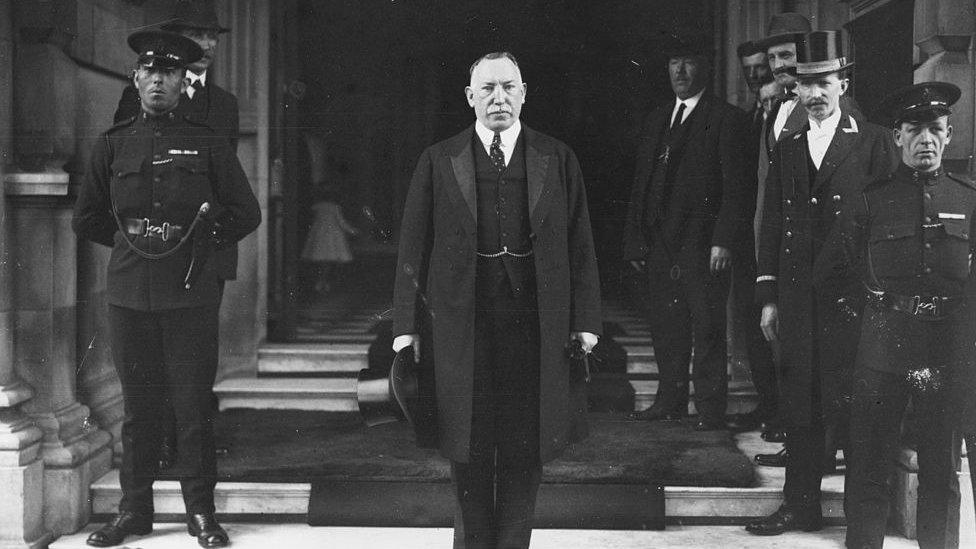
Sir James Craig said the Northern Ireland Parliament was "a Protestant parliament for a Protestant state"
Sinn Féin was a party hated and vilified by many in Northern Ireland for decades.
The all-island party traces its origins to 1905 but its modern roots are in the early 1970s.
Throughout the Troubles in Northern Ireland it was the political wing of the Provisional IRA.
Since the 1980s its electoral strength has grown and, in 2003, it overtook the SDLP to become the biggest nationalist party in Northern Ireland.
Its core belief is that Ireland should be united as one country.
So, like in Scotland where its first minister actively wants independence, another part of the United Kingdom will have a first minister who wants to dismantle the union.
Symbolically that's huge - but, remember, Michelle O'Neill and whoever the DUP nominate as deputy first minister will lead the Northern Ireland executive together.
Post-1998 changes
From the first Parliament of Northern Ireland in 1921 to the last in 1972, when direct rule was established, every prime minister was an Ulster Unionist.
The first was Sir James Craig, the last Brian Faulkner in 1972 when direct rule from Westminster was established as the Troubles escalated in Northern Ireland.
When devolution was re-established with the 1998 Good Friday Agreement it changed the make-up of any future assembly.
No longer would it be first-past-the-post with the largest party taking control.
Proportional representation would be used, meaning seats won by any party would reflect the votes cast.
There would also be mandatory coalition, where successful parties would govern together on a cross-community basis.
Parties would designate as either unionist and nationalist and the first and deputy first ministers would be nominated by the biggest parties from each tradition.
But the UUP and then DUP have electorally been the biggest parties and filled the first minister role.
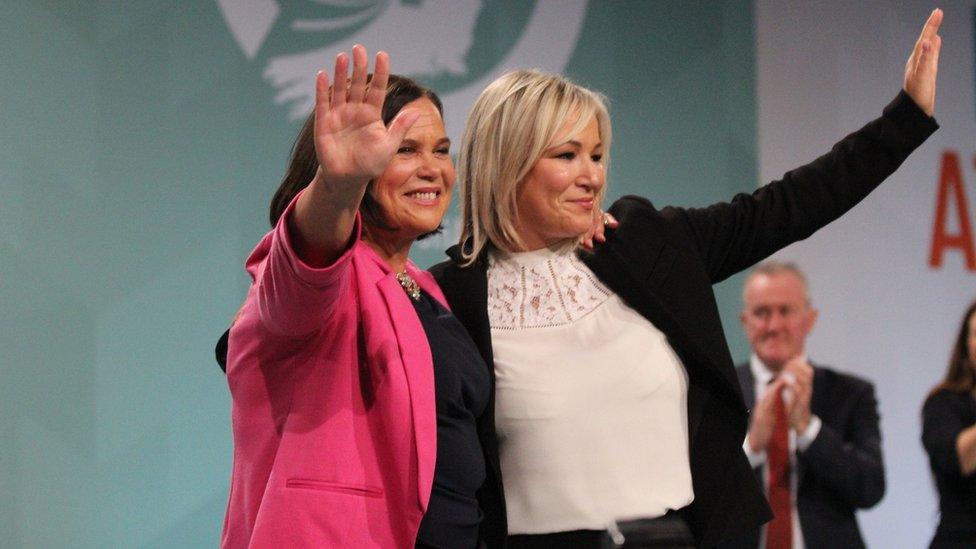
Sinn Féin leader Mary Lou McDonald with vice-president Michelle O'Neill at the party's Ard Fheis in November
That changed in 2022 when Sinn Féin won the most seats at an assembly election - the first time a nationalist party had done so.
That means they get the top job.
In December, a Commons committee said the roles should be renamed joint first ministers, adding there was "no justifiable reason" not to.
As a party, Sinn Féin have been referring to Martin McGuinness and Michelle O'Neill as joint first minister rather than deputy first minister for quite some time.
The DUP have been a little more reticent about changing the terminology.
Regardless it's a Sinn Féin first minister at Stormont - and there's a real possibility of more change.
Sinn Féin president Mary Lou McDonald could become taoiseach (Irish prime minister) after the next Irish general election, further highlighting how the political face of the island of Ireland is changing.
Related topics
- Published20 June 2021
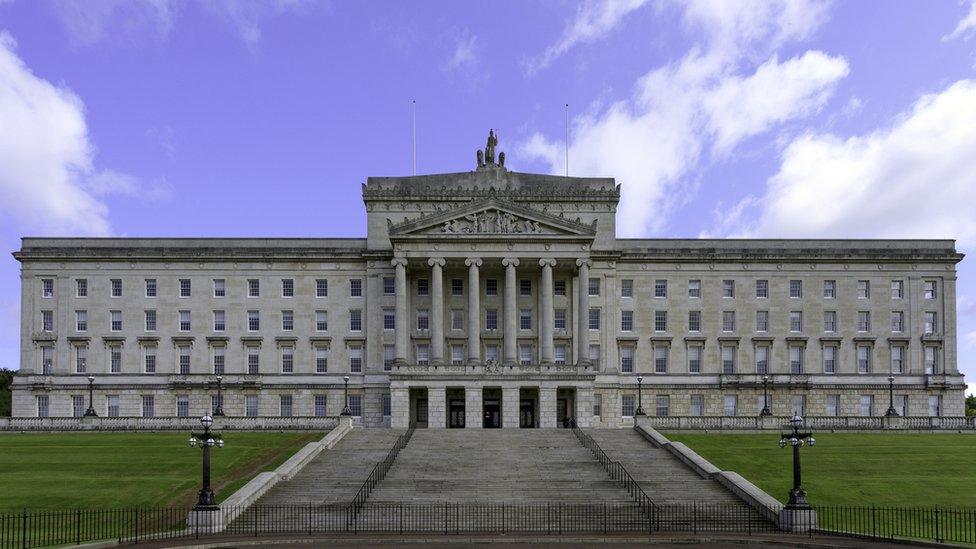
- Published4 December 2023
